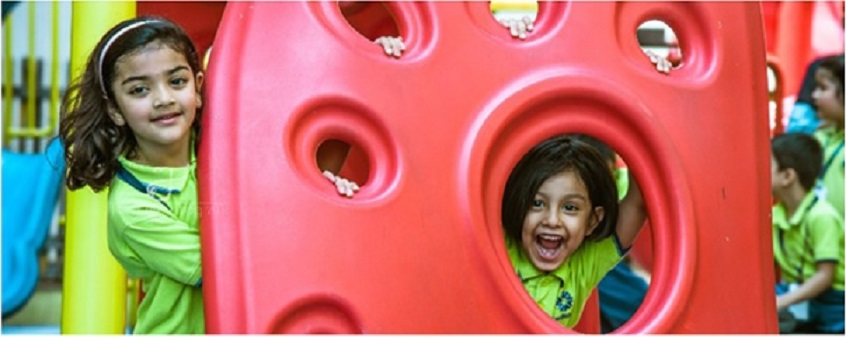The name ‘playschools’ aptly defines the experience a child goes through during their early years of development. It is an early childhood program run by professionally trained adults in which learning is mixed with play.
The importance of Preschool education is that it helps in a child’s emotional, social, and personal growth and development. Preschool is the first experience of a child in a structured setting, where they learn how to share and learn new things. This fosters their personal growth. When 3-year-olds spend time with adults other than their parents, they learn to build trusting relationships with adults.
A child learns to talk at home, but in preschool, they can continue developing their skills through interaction with other kids and teachers. The thoughts and imagination of the child are transformed into information. This information and mental images are what develop into their language. Exposure to rich language through role-plays, read-aloud sessions, and stories helps to enhance the child’s vocabulary, thereby promoting language skills.
Most parents give their children plenty of attention concerning their basic needs and shower them with toys to entertain them. However, in preschools children are given the right toys, those appropriate to their stage of development. There is free play and guided play which makes play a learning experience. The idea is that children would transfer these play behaviors such as feeding a doll, changing its clothes, building and organizing bricks, to themselves, and thus develop self-help skills. The thinking is that if a child can go through the motions of feeding a doll, it will soon learn to feed itself.
Playschools also teach children to recognize their possessions. Soon the child will learn to identify their schoolbag. Learn the mealtime routine that involves opening a lunchbox, folding a napkin and putting everything back after the meal is over, and so on. Children are not born with these skills; they have to develop them. And this is where the playschool steps in to help the parents out.
Playschool also helps minimize separation anxiety. It prepares children to face the world, as they are self-confident and independent and also have improved interpersonal skills and vocabulary. The child’s language skills develop faster as they interact with many children of their age and a little older.
Children are not the only ones who benefit from playschools. They provide parents with an external support system in terms of enhancing the child’s developmental skills. In addition, parents get an opportunity to interact with other parents and keep in touch with different approaches to parenting. Parents also have a chance to observe other children and thus have a point of reference for judging their own child’s behavior. Parents can approach the trained supervisors for advice if they are facing any problems with their child at home. In other words, playschools widen parenting horizons.
The constructive set of parents is of the strong feeling that early school leads to better development of the child’s brain and knowledge stream. A well-structured school is beneficial in their overall growth.
Playschool helps in building a strong foundation in social, pre-academics, and general life skills. It helps in the development of a child’s emotional and personal growth and provides opportunities for children to learn in ways that sheerly interests them and develop a strong sense of curiosity. Consequently, it helps in building a positive association with inquisitive learning in the form of fun activities and guided play.














